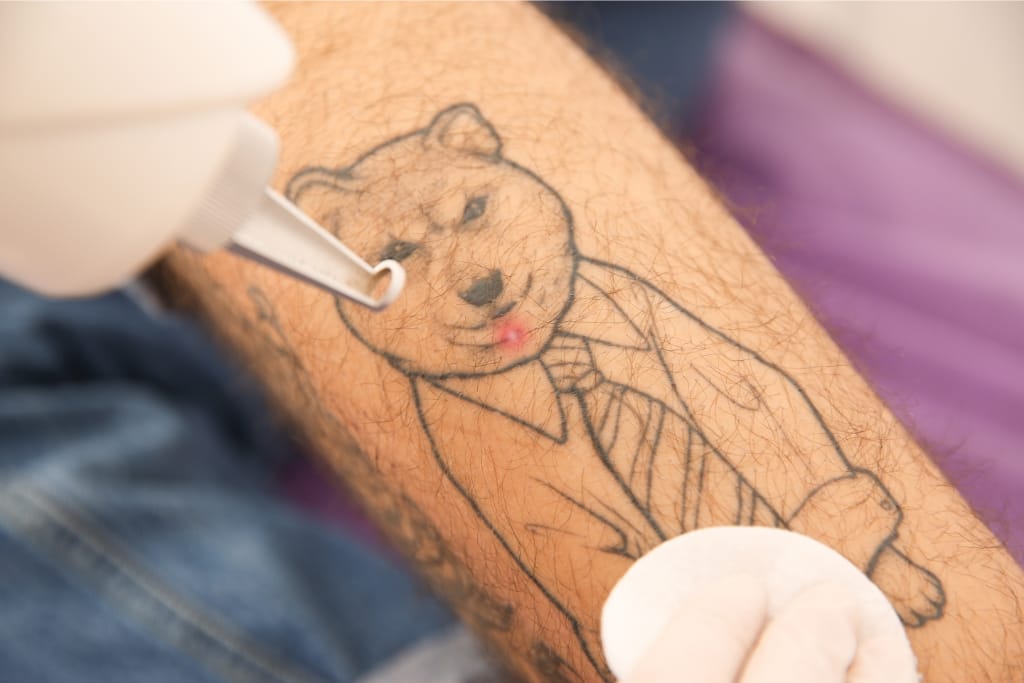Tattoos are often seen as a form of self-expression, representing moments, beliefs, or personal aesthetics that are meaningful to us.
However, as time goes on, perceptions can change, leading some to wish they had approached the decision differently.
The permanent nature of tattoos can be daunting once priorities or tastes shift.
Discovering unmet expectations, changes in lifestyle, or professional considerations can turn what was once a cherished design into a source of regret.
Understanding the reasons behind these regrets can be enlightening for anyone considering new ink.
Read on as we delve into the most common reasons people wish they had thought twice before getting their tattoos.
1)) Impulsive Decision Making
One of the most prevalent reasons for tattoo regret is making impulsive decisions.
Often, tattoos are chosen on a whim, driven by immediate emotion, peer pressure, or an in-the-moment desire to capture a fleeting feeling.
This urgency can lead to hasty decisions without fully contemplating the long-term implications.
Without adequate thought, individuals might find themselves with designs that no longer resonate with their evolving identity.
Tattoos obtained in this hurried manner frequently lack personal significance and can turn into reminders of a past self they have outgrown.
Taking the time to reflect and plan can prevent these spontaneous choices and reduce future regret.
2)) Change In Personal Preference
Over time, personal tastes and preferences inevitably shift, which can transform a beloved tattoo into a relic that feels out of place.
As individuals grow and mature, what once seemed appealing may no longer align with their evolving sense of style or identity.
A design that once captured the essence of an era or a phase might now appear dated or irrelevant.
Exposure to new life experiences, ideas, and cultural influences can further alter how individuals perceive their body art.
Such changes in preference can lead to dissatisfaction, as tattoos that used to perfectly complement one's personality no longer do so.
Embracing this natural evolution is important, and carefully considering long-term appeal before getting a tattoo can help mitigate these feelings of regret.
3)) Poor Design Quality
The quality of a tattoo design significantly impacts how it is perceived over time, and unfortunately, not all tattoos meet the expectations held at the outset.
Poor design quality is often a result of choosing an inexperienced or unskilled tattoo artist, leading to sloppy execution, inadequate shading, and misaligned elements.
Some individuals may not provide sufficient reference material or may settle for designs that do not translate well to skin.
Over time, these flaws become glaring reminders of subpar artistry, detracting from the intended message or aesthetic value of the tattoo.
Investing in a reputable and experienced artist, along with proper design planning, can greatly improve the likelihood of satisfaction and reduce future regret.
4)) Professional Constraints
In many professional settings, visible tattoos are viewed as unprofessional or distracting, which can pose a significant dilemma for individuals with prominent body art.
This societal perception means that tattoos visible during job interviews or throughout the workday could negatively impact hiring decisions or opportunities for career advancement.
Certain industries, particularly those with conservative or traditional cultures, often emphasize a polished and uniform appearance, leaving little room for self-expression through tattoos.
As career paths shift and job seekers navigate various industries, they may encounter unexpected barriers due to their ink.
Understanding the potential professional constraints that tattoos can impose is essential in weighing the decision, as this awareness can guide individuals to choose tattoo placements that allow for discretion when needed, reducing the risk of conflict with career goals.
5)) Emotional Associations
Tattoos often carry significant emotional weight, serving as lasting mementos of people, places, or experiences that have deeply impacted an individual’s life.
However, as circumstances evolve, the emotional resonance attached to a tattoo can change dramatically.
For instance, a tattoo memorializing a past relationship, once full of fond remembrance, may become a constant reminder of pain or heartbreak if the relationship ends unfavorably.
Similarly, body art reflecting a specific phase or event can turn into a relic of times that one might want to move beyond.
These shifting emotional landscapes can lead to feelings of regret, as what was once a source of comfort or celebration transforms into an unwelcome reminder.
Acknowledging these potential shifts before getting a tattoo can help in making a meaningful and enduring choice, minimizing the chance of running into emotional distress in the future.
6)) Social Stigma And Judgment
Social stigma and judgment surrounding tattoos can significantly impact an individual's experience and perception of their body art.
Despite increasing acceptance, tattoos can still be seen as rebellious or unprofessional in certain social circles and communities.
This prejudice may lead to assumptions about a person's character, lifestyle, or values that do not accurately reflect who they are.
The scrutiny and bias one faces due to visible tattoos can affect personal relationships, social interactions, and even employment opportunities.
Moreover, this judgment may cause individuals to feel self-conscious, altering the way they present themselves to the world.
Recognizing the enduring presence of social stigma and judgment is crucial, as it enables one to anticipate and navigate potential challenges while choosing tattoos that authentically represent their identity, yet consider societal impacts.
7)) Aging And Skin Changes
As the human body ages, the skin undergoes various changes that can alter the appearance of tattoos, sometimes making them less vibrant or distorted.
Factors such as loss of elasticity, wrinkles, and sagging skin all contribute to the transformation of a once-crisp design into a blurred or stretched image.
Exposure to sunlight over the years can fade colors and lead to discoloration.
These changes are natural and inevitable, yet they can affect the original intent and aesthetic value of tattoo artwork.
Acknowledging that aging can impact tattoos should be a crucial part of deciding to get one, as it prompts individuals to consider placement, size, and design choices that can age gracefully with the body, maintaining their significance and visual appeal over time.
Conclusion
Considering the multifaceted implications of getting a tattoo reveals the depth and complexity of this form of personal expression.
From the choice of artist to the potential hurdles in professional and social environments, each aspect requires careful consideration.
Tattoos encapsulate personal stories and emotions, yet they can also subject individuals to external judgments and the unavoidable changes of the aging process.
By thoughtfully weighing these factors before getting a tattoo, one can make informed decisions that honor personal significance while contemplating the broader impacts.
Regardless of these challenges, tattoos remain a powerful medium through which people can authentically express their identities and experiences.
Download Our Free E-book!








